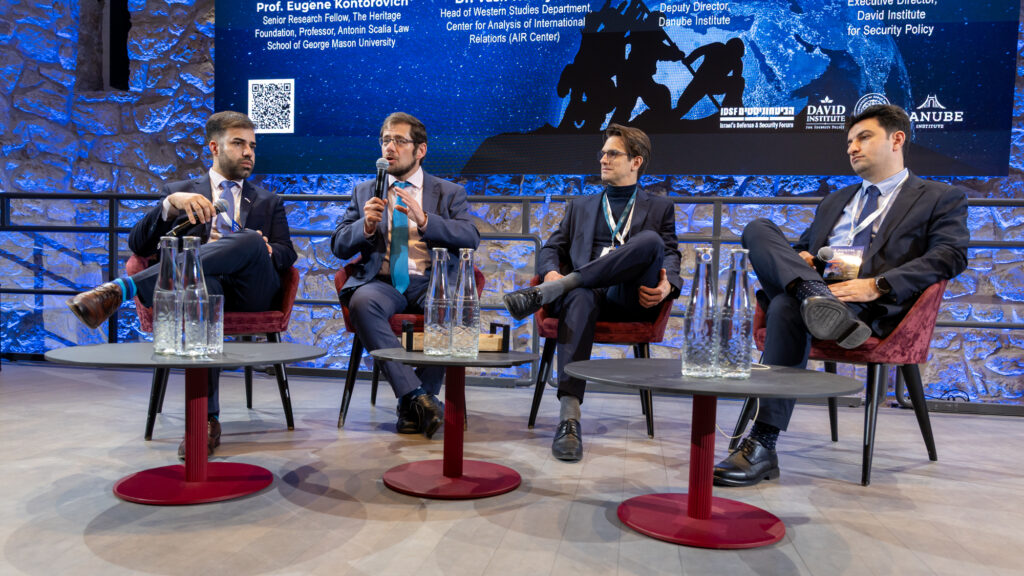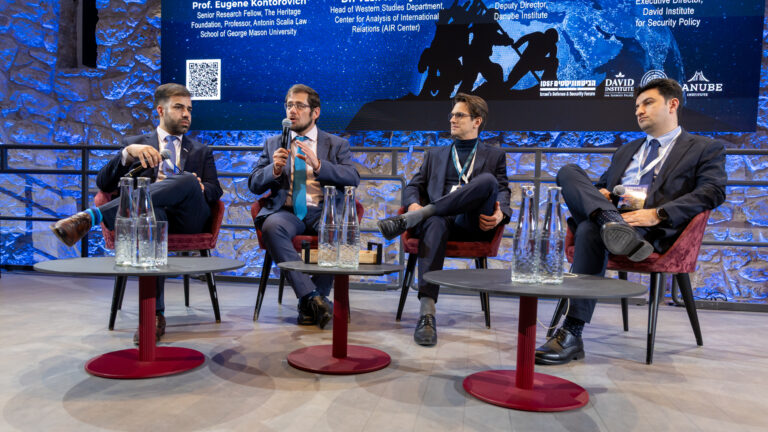What future awaits the member states of the European Union: an even more centralized decision-making structure with the European Commission controlling all powers at the helm of the EU, or a cooperation that respects and builds upon the sovereignty of member states? This question was at the heart of a thought-provoking and refreshing panel discussion on Wednesday at the 34th Bálványos Summer Free University and Student Camp, featuring Hungarian Minister for EU Affairs János Bóka, American conservative author and visiting fellow at the Danube Institute Rod Dreher, Democratic Alliance of Hungarians in Romania (RMDSZ) MEP Lóránt Vincze, and historian Miklós Bakk.
At the outset of the discussion, Vincze highlighted one of the most important arguments shaping contemporary European politics. As the RMDSZ MEP noted, there is no universal ‘recipe’ that addresses the demands and needs of every member state. However, dialogue and cooperation matter, as they are the way forward for Europe. He cited the example of Transylvanian Hungarians to justify his point: they are far better off under increased federalization than if powers were returned to member states—in this case, to Romania. This, he added, also reveals much about the dysfunction of the Romanian state.
Bóka emphasized that a defining question within the European Union today is who determines the direction of deeper cooperation: the institutions—in this case, the European Commission—or the member states. ‘It is also an interesting question whether a member state can go against the will of the majority and take a different position on a particular issue,’ he remarked, most likely referring to Hungary’s veto—exercised by Prime Minister Viktor Orbán—blocking the fast-track accession of Ukraine, despite widespread support in Brussels and among other EU member states.
The Minister for EU Affairs went on to argue that the timing of this debate is no coincidence. In his view, European citizens are increasingly realizing that decisions taken at the EU level are not serving their interests. Bóka also underlined the role of the Court of Justice of the European Union, which, as on many occasions in EU history, assumes the function of a ‘non-existent political will’ of the member states and pushes the integration process forward. Therefore, he argued, member states must have the tools to act differently and correct flawed EU policies—just as Hungary does with migration.
Pre-Civil War Conditions
Offering an American perspective on European politics, Rod Dreher cited Vice President JD Vance’s now-iconic Munich speech, in which Vance blamed EU member states for failing to take a firm stance against mass migration and for falling short on safeguarding free speech. Dreher argued that America needs a strong Europe; however, the EU is increasingly abandoning meaningful sovereignty and democracy. In his view, EU elites are acting suicidally by promoting mass migration, as pre-civil war conditions are emerging in virtually every Western European country. In this context, he praised Hungary for its resistance, stressing that the price the country is paying—Brussels withholding billions of euros in EU funding—is worth it.
‘EU elites are acting suicidally by promoting mass migration’
‘A reduction in the powers of Brussels and more power returning to the member states,’ Dreher said, is what the future of the EU should look like. He added that, in order to break the hegemonic control of the European Commission, patriotic forces—including parties, media outlets, and other organizations—must unite. He also drew a comparison between EU and US elites, claiming that both pretend to be democratic while acting in an authoritarian manner. ‘That was the main reason why Donald Trump rose to power in 2016,’ he added, noting that people are increasingly losing faith in institutions.
A Top-Heavy System
Miklós Bakk pointed out that both the sovereigntist and federalist camps are highly heterogeneous. He illustrated this by comparing Viktor Orbán’s brand of patriotism with that of George Simion, agreeing that while Orbán represents a more anti-establishment perspective, Simion’s approach borders on fascism. Despite the internal diversity within both camps, the dividing line between them is growing deeper—and carries historical and geographical dimensions. According to the historian, the most likely outcome is a two-speed Europe, in which the Western core proceeds with a more federalized, centralized structure, while the border regions—Eastern Europe—adhere to the current or an even more decentralized model.
Responding to Bakk’s historical and geographical distinctions, Vincze observed that border regions within historical empires could function effectively without strong central oversight. That is why, he argued, it is incomprehensible that Brussels is pushing for an even more centralized structure and seeking to influence every member state. ‘A national government does not necessarily have as much say in the life of an administrative unit as the European Commission has in the life of a member state,’ he remarked, adding that the EU has become a bloated, top-heavy system. Vincze contended that the European Commission under Ursula von der Leyen has become a super-centralized institution, and the EU is now led by the Commission rather than the member states. This is further evidenced by the way Brussels often overrides the European Parliament—the EU’s only directly elected institution—by cherry-picking issues it wishes to negotiate with the EP. This tendency is clearly visible in the recently proposed EU budget for 2028–2034, which—he continued—could mark a watershed moment in the Union’s centralization process.
Related articles:







